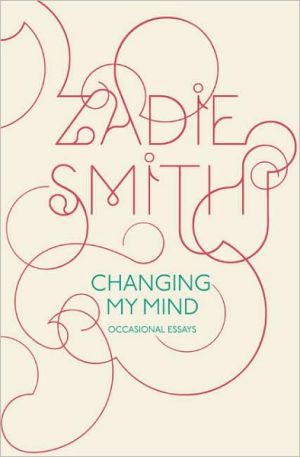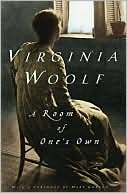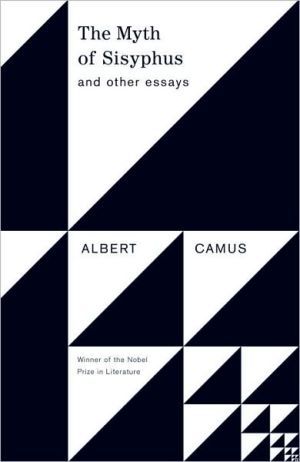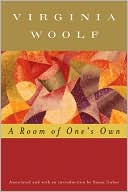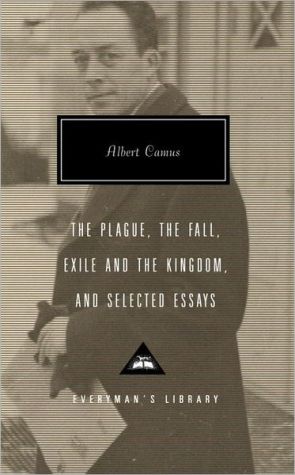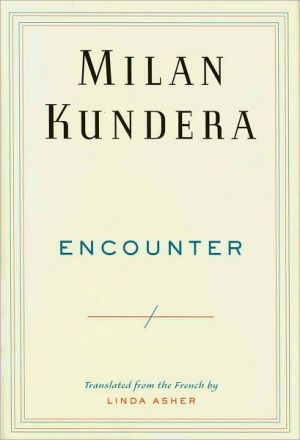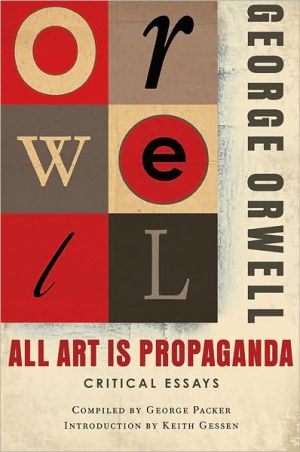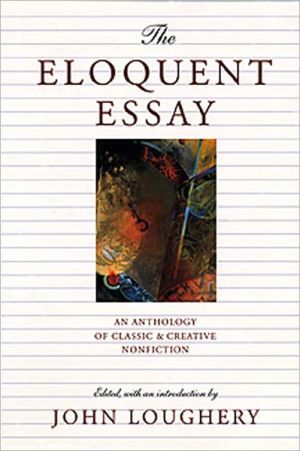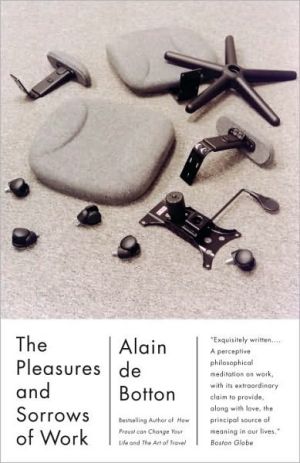Changing My Mind: Occasional Essays
A sparkling collection of Zadie Smith's nonfiction over the past decade.\ Zadie Smith brings to her essays all of the curiosity, intellectual rigor, and sharp humor that have attracted so many readers to her fiction, and the result is a collection that is nothing short of extraordinary.\ Split into four sections-"Reading," "Being," "Seeing," and "Feeling"-Changing My Mind invites readers to witness the world from Zadie Smith's unique vantage. Smith casts her acute eye over material both...
Search in google:
"[These essays] reflect a lively, unselfconscious, rigorous, erudite, and earnestly open mind that's busy refining its view of life, literature, and a great deal in between." -Los Angeles Times Split into five sections-Reading, Being, Seeing, Feeling, and Remembering—Changing My Mind finds Zadie Smith casting an acute eye over material both personal and cultural. This engaging collection of essays-some published here for the first time-reveals Smith as a passionate and precise essayist, equally at home in the world of great books and bad movies, family and philosophy, British comedians and Italian divas. Whether writing on Katherine Hepburn, Kafka, Anna Magnani, or Zora Neale Hurston, she brings deft care to the art of criticism with a style both sympathetic and insightful. Changing My Mind is journalism at its most expansive, intelligent, and funny-a gift to readers and writers both.The Barnes & Noble ReviewAs the decade winds down and best-ofs are published, one of the least controversial names on literary lists is Zadie Smith's. Her White Teeth (2000) was an instant landmark, a novel of multicultural London at once accomplished and authentically youthful, fresh. Its structure, its improbable ending, mattered less than its startling new voice. Smith, however, repaid the hype surrounding this debut with novels of more deliberate construction, for example paying homage to E. M. Forster in her third novel, On Beauty. But this attitude -- at once studious and brilliantly presumptive -- has seen the best results in her criticism. As a still-young writer, Smith isn't afraid to ask big questions. And as a famous novelist, she isn't afraid to answer them. It is even whispered in some corners that Zadie Smith may become not a great novelist but a great critic.
\ From Barnes & NobleSpotlights have been shining on English writer Zadie Smith ever since White Teeth, her debut novel, generated a publishers' bidding war when she was still in her mid-twenties. In the years since, things have not darkened: In 2003, she earned herself a spot on Granta's list of the twenty best young writers and both her fiction and nonfiction continue to garner attention. This collection shows her range. Its subjects include Kafka, Katherine Hepburn, British comedians, David Foster Wallace, and philosophy. Acute insights from a stylish young writer. Now in paperback.\ \ \ \ \ \ Library JournalSmith (White Teeth; On Beauty) had a successful debut as a writer shortly after completing college; reading her essays, one understands why. Her examinations of a wide range of subjects confirm her writing talents with wit, candor, occasional self-deprecation, and insight. In this collection, Smith demonstrates her knack for recognizing and appreciating different points of view. Organized into five sections—"Reading," "Being," "Seeing," "Feeling," and "Remembering"—these essays, most of which were previously published, address an eclectic range of topics, including Italian cinema, visiting Liberia, Hollywood on Oscar night, writing advice, Katharine Hepburn, and President Obama, that will appeal to everyone. The collection features lectures on writing, movie reviews, and literary criticism such as examinations of Franz Kafka, Roland Barthes, Vladimir Nabokov, E.M. Forster, and George Eliot's Middlemarch; Smith pays homage to the late David Foster Wallace and his writing genius. Her essays on her family, especially about her father and his wartime experiences, are candid and touching. VERDICT Recommended for readers of nonfiction, creative writing enthusiasts, and literary scholars. [See Prepub Alert, LJ 7/09.]—Erica Swenson Danowitz, Delaware Cty. Community Coll., Media, PA\ \ \ Kirkus ReviewsRarely does a book that seems to promise so little deliver so much. Even the subtitle, Occasional Essays, of Zadie Smith's nonfiction collection Changing My Mind, carries a whiff of modest ambitions. This isn't, it seems to say, nearly as substantial as Smith's novels. Yet rather than the usual clean-out-the-closets collection-the miscellany of articles that fills the publication gap between big books-this volume, which includes previously published material, offers the sort of insight that will not only enlighten fans but should provide plenty of illumination for anyone who appreciates fiction and words and the interplay between writer and reader as much as Smith plainly does. The best of these essays are as concerned with the essence of reading well as writing well. And they are written so incisively, and with so much empathy and warm-hearted humor, that they show how reading has made Smith the writer that she is. Rather than a critic advancing an argument or an academic analyzing in code, she's a writer who understands the reader's perspective, a reader who understands the writer's. When she praises the "broad sympathetic sensibility" of E.M. Forster (who provided the template for her novel On Beauty), she could well be describing her own. Much of her writing on literature doesn't directly critique other writers, but critiques the critiques, as Smith sees Middlemarch through Henry James's eyes while inviting the reader to read (or re-read) George Eliot's classic through Smith's. Whether she's describing how she initially resisted the seminal influence of Zora Neale Hurston, perhaps the first of the great authors about whom Smith has changed her mind, or celebrating the late DavidFoster Wallace ("he was my favorite living writer") through a close reading of his Brief Interviews With Hideous Men, Smith shows a universalist's, omnivorous appetite for literature. The book's title implies more than arriving at a different verdict. As the author matures, becomes more educated and experienced, she reads with a mind that is different than it was. As reading fiction leads to writing it, she develops a more profound understanding of those different, symbiotic roles. "Reading has always been my passion, my pleasure, and I am constitutionally drawn to any thesis that gives power to readers . . . ," she writes. "But when I became a writer, writing became my discipline, my practice, and I felt the need to believe in it as an intentional, directional act, an expression of individual consciousness."These essays aren't all about literature. The most moving one is pure memoir, linking the death of her father and her family's appreciation for comedy. (The weakest are the film reviews, some little more than capsules.) But even when delving into politics, Smith brings a novelist's attention to language, style and tone. If she'd never written a novel, this collection alone would make me eager to read more of her work.\ \ \ \ \ The Barnes & Noble ReviewAs the decade winds down and best-ofs are published, one of the least controversial names on literary lists is Zadie Smith's. Her White Teeth (2000) was an instant landmark, a novel of multicultural London at once accomplished and authentically youthful, fresh. Its structure, its improbable ending, mattered less than its startling new voice. Smith, however, repaid the hype surrounding this debut with novels of more deliberate construction, for example paying homage to E. M. Forster in her third novel, On Beauty. But this attitude -- at once studious and brilliantly presumptive -- has seen the best results in her criticism. As a still-young writer, Smith isn't afraid to ask big questions. And as a famous novelist, she isn't afraid to answer them. It is even whispered in some corners that Zadie Smith may become not a great novelist but a great critic.\ There are, however, two essays missing from her first nonfiction collection, Changing My Mind. One would be Smith's response to her most famous critic, James Wood. Published in October 2001, "This Is How It Feels to Me" concedes that, with September 11th, reality had outdone and outstripped the "hysterical realism" that Wood saw in novels like Smith's White Teeth. Yet Smith turns to defend other works "of high artifice" that Wood dismissed. She mentions David Foster Wallace and Don DeLillo, and in order to praise their writing she borrows a timely phrase from a forebear, Vladimir Nabokov: "laughter in the dark." Her essay was polemical but disarming. Smith's point was that both she and Wood had something to learn from each other. It was a tour de force of common sense.\ The second essay missing from Changing My Mind is imaginary -- it would be an essay on Smith's attitude toward the academy. This essay would not be dry. In fact it might encompass Smith's attitude toward growing up, toward leaving home, and even toward authority. I miss it because the voice of the essays we already have is at once academic and anti-academic: Smith is dancing around the authority of the ivory tower.\ The greatest essay here, "Dead Man Laughing," would at first seem to have little to do with universities. Shaped like a figure 8, it discusses her father's sense of humor and outlines the range of postwar British comedy before turning alarmingly in on itself, telling the story of her father's death and cremation: "It left me suspended in a bad joke in which a living man inexplicably becomes two pints of dust.... A body would have been usefully, concretely absurd." Laughter in the dark: Her brother reacts to their father's death by doing stand-up, which leads Smith to envy the trial-and-error perfectibility of comic routines -- which brings her to the twist, the anticomedian, the British version of Lenny Bruce who invites failure onstage and who, in his fatalism, conclusively reminds her again of her father.\ Speaking for Britain, she says, "You don't have to be funny to live here, but it helps." Smith no longer does, entirely: living in Rome, she empties her father's ashes out of Tupperware into an upscale Italian vase. She, a famous comic novelist, describes her own failed tryout for the Cambridge Footlights. "I wasn't funny. Not even slightly." That was a discovery made at university, the same place that deprived her of her father's accent. Smith remembers the tryout only when she flies home to watch her brother do his first stand-up, in London. This is an essay about recognizing home from a distance.\ Sophistication is not earned, it is assumed, put on like a dress that, stunningly, fits. After achieving fame at 24 Smith moved around the globe and even set On Beauty on an American campus. She was a fellow at Harvard, taught at Columbia, and spent a year in Rome, and will begin a tenured professorship at NYU in 2010. She writes amazingly about movies, but her essay most "about America" concerns a journalistic trip to the Oscars: "the woman in Bond Street" sells Smith an extravagant red gown, but the California makeup man tells her she's overdressed. Her point is that outsiders overestimate the glamour of Hollywood, but to make this point she misconstrues a New Yorker cartoon. A man in a squalid bathtub exclaims: "It's Oscar time -- there's that special tingle in the air!" Smith infers that the joke is on this man, so pathetically far from the red carpet; yet surely the joke is on the Oscars, on the idea that anyone could get as excited about them as TV pretends we do.\ It's in her literary essays that Smith can be most adroit, demonstrating a situational awareness that is neither American nor British nor Oxbridge but what might be called HarvOx: not cozy but broadly self-assured. "Rereading Barthes and Nabokov" makes a clever scholarly sandwich, laying the White Russian genius against the man who wrote "The Death of the Author," but it turns out to be a forthright personal essay, a rare statement of what it feels like to rethink theory, post-college. "I've changed my mind," says Smith, who originally gave this as a talk to Harvard students.\ Common sense triumphs again. But in her controversial "Two Directions for the Novel," Smith tacks skyward. Read between the lines, this is the head-on rebuttal to Wood that her October 2001 essay wasn't. Wood originally branded Smith and her cohort as Hysterical Realists; now Smith comes back with a label of her own, Lyrical Realists. They are a much bigger target. But, discounting Smith's affirmation of Tom McCarthy's Remainder, which is made to do too much too conveniently in the second half of the essay, she hits her target squarely. Quoting French theorist Alain Robbe-Grillet, Smith warns that mainstream grown-up Americans are too obsessed with the "total and unique adjective, which attempt[s] to unite all the inner qualities, the entire hidden soul of things." Think Updike, think Bellow. Smith's immediate target is Joseph O'Neill's Neverland, a lovely novel which for Smith was in the wrong place at the wrong time.\ What's convincing is not Smith's radicalism -- or her conservatism -- but her moderation. She assumes that we are living in a corrective moment. She is on the lookout for the "great lie[s] of our contemporary culture"; she is ready to move beyond the "deformations" that affected civil rights leaders in the past. She distrusts what she calls the "neutral universal" -- the scholarly voice she must abandon in order to declare, against her training, that part of the reason she likes Zora Neale Hurston is her blackness: "Fact is, I am a black woman, and a slither of this book goes straight into my soul, I suspect, for that reason."\ To write about Obama, Smith brings in Shakespeare and his famous ability to speak in different voices, taking both sides in his characters' arguments. She makes the immemorial point that the line "to thine own self be true," was spoken by Polonius, a hack, and claims that editorials about the authenticity of Obama's African-American voice miss an opportunity. "Voice adaptation is still the original British sin," she laments, remembering that she didn't mean for her Cambridge voice to so completely supplant her original, working-class voice.\ But her Cambridge voice is real. By choosing not to write in a standard critical voice, a "neutral universal," Smith only obtains a more pungent version of that Cambridge voice which we assumed the "neutral universal" to be. If you're not universal, you're parochial -- you're Cambridge, England, talking to Cambridge, Massachusetts. And of course you're multicultural. So is she kidding herself? I doubt it. If anything, Smith seems to know what she's doing. By choosing to write like a student, she slyly undermines the complacencies of dons and magazine critics. But I want to hear more. --Benjamin Lytal\ Benjamin Lytal lives in Brooklyn and teaches at the Pratt Institute. His criticism has appeared in The Nation, Bookforum, and the Los Angeles Times.\ \ \
